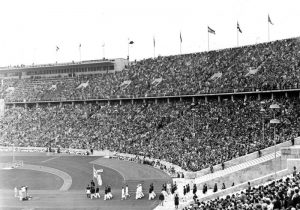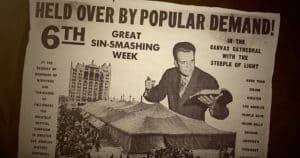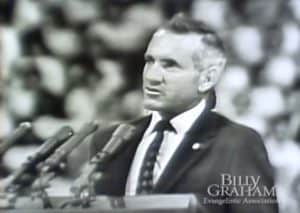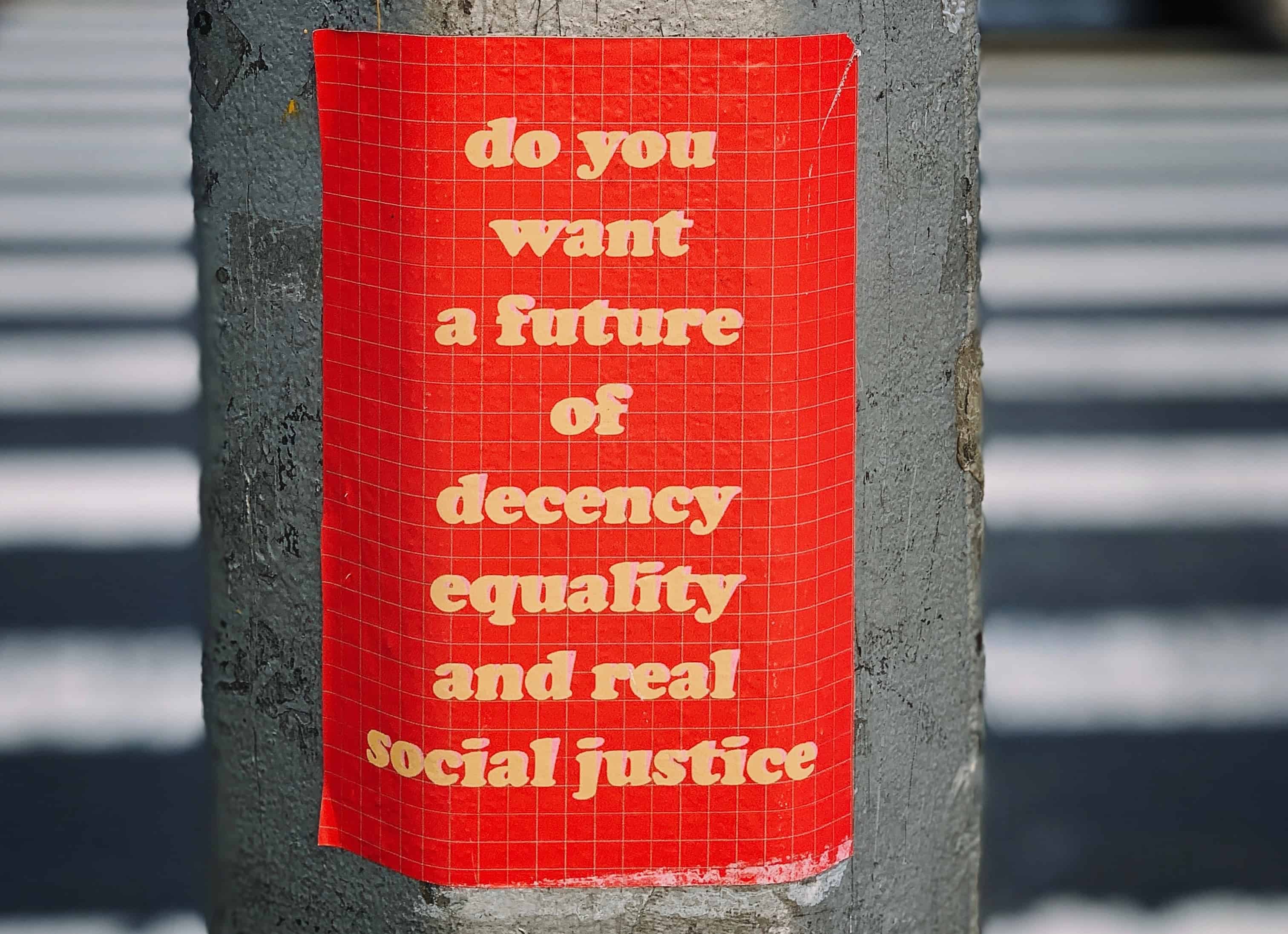Let all bitterness, wrath, anger, clamor, and evil speaking be put away from you, with all malice. And be kind to one another, tenderhearted, forgiving one another, even as God in Christ forgave you.
—the apostle Paul to the Ephesian Christians in Ephesians 4:31-32—
You have heard that it was said, “You shall love your neighbor and hate your enemy.” But I say to you, love your enemies, bless those who curse you, do good to those who hate you, and pray for those who spitefully use you and persecute you, that you may be sons of your Father in heaven; for He makes His sun rise on the evil and on the good, and sends rain on the just and on the unjust.
—Jesus in Matthew 5:43-45—
You are the light of the world. A city that is set on a hill cannot be hidden. Nor do they light a lamp and put it under a basket, but on a lampstand, and it gives light to all who are in the house. Let your light so shine before men, that they may see your good works and glorify your Father in heaven.
—Jesus in Matthew 5:14-16—
Key point: Both mercy and justice are biblical ideals, but they are different, and it is critical that we understand how they are different. While we as Christians are called by God to treat everyone justly and fairly in various contexts, we also are to glorify Him by showcasing His grace and mercy in many others.
Note: In order to keep this article from becoming excessively long, I am splitting it into at least two parts. In this post we will examine a moving display of mercy and grace in the life of a believer. What we learn here will set the stage for some insightful observations we will make next time.
To access additional Word Foundations articles on social justice, go here.
In Matthew 18:21-35, Jesus told His parable of the unforgiving servant. A king took steps to settle accounts with those who owed him money. One servant owed him an astronomical amount— “millions of dollars,” the New Living Translation tells us in verse 24. Understandably, the man begged the king for additional time to pay. The king was more than merciful; he was gracious and forgave the entire debt.

Having been liberated from such a massive burden, this servant, you would think, readily would treat others graciously as well. Yet he did not. He promptly found someone who owed him “a few thousand dollars” (v. 28, NLT) and demanded payment. When the one who owed him money begged for more time, the servant who had just been forgiven by the king “went and threw him into prison till he should pay the debt” (v. 30, NKJV).
When the king got wind of what had happened, he was furious! We cannot be surprised at this. He called in the unforgiving servant and declared, “You wicked servant! I forgave you all that debt because you begged me. Should you not also have had compassion on your fellow servant, just as I had pity on you?”
Jesus concluded His parable by describing the fate of this unforgiving man. “And his master was angry, and delivered him to the torturers until he should pay all that was due to him.” Then He added, “So My heavenly Father also will do to you if each of you, from his heart, does not forgive his brother his trespasses.”
As believers, we must take Jesus’ words very seriously. Because God has forgiven each one of us a massive debt he or she had no hope of paying—ever—every Christian must be willing and ready to forgive others, believers and unbelievers alike.
One man who demonstrated this in his own life, with God’s help, was Louis Zamperini.
Part One
Those Who Are Forgiven Are Compelled to Forgive
Having been a track star in high school, Louis Zamperini competed in the 1936 Olympics in Berlin, Germany at the age of 19. Although he finished 8th in the 5,000 meter race during those games, his last lap around the track lasted a mere 56 seconds and caught the eye of Adolph Hitler. Hitler requested a meeting with Zamperini, and when they met, the Führer shook his hand and told him, “Ah, you’re the boy with the fast finish.”

World War 2 Hero

Zamperini went on to serve in World War 2 as a bombardier in the the Army Air Corps’ 372nd Bomb Squadron. He was a part of numerous dangerous missions before one in which his plane lost power and crashed into the Pacific Ocean, killing 8 of the crew members and leaving Zamperini and two other survivors adrift at sea. Fending for themselves as best they could as they floated atop the perilous waters, each of the three men endured blistering heat and extreme weight loss. They drank the rainwater they were able to capture and on a few occasions were able to snatch and eat a bird or fish. One of their number, Francis McNamara, the tail gunner, died on the thirty-third day of what was to become a total of 47 days adrift for the remaining two.
Zamperini and his fellow crewman, pilot Russell Allen “Phil” Phillips
finally washed ashore. They found themselves on a Pacific island 2,000 miles from the crash site and in enemy Japanese territory. While saved from the ocean, the men were soon taken as prisoners of war by the Japanese, beginning the next leg of their horrific experience.
In captivity across a series of prison camps, Zamperini and Phillips were separated and subjected to torture, both physical and psychological.…Yet Zamperini, as a former Olympic athlete, was seen as a propaganda tool by the Japanese, a scenario that likely saved him from execution.
The captivity lasted for more than two years, during which time Zamperini was officially pronounced dead by the U.S. military. Zamperini was released only after the war ended in 1945, and he returned to the United States.
One Japanese officer made life indescribably difficult for the former Olympian. Louis
suffered from disease, exposure, starvation, and near-daily beatings from guards. Japanese corporal Mutsuhiro Watanabe, nicknamed “the Bird” by the POWs, took particular glee in torturing the runner. During stints at the Omori and Naoetsu prison camps, Mutsuhiro pummeled Zamperini with clubs, belts and fists and regularly threatened to kill him. On one occasion [depicted in the clip below from the movie Unbroken], he had Zamperini hold a heavy wooden beam above his head and threatened to shoot him if he dropped it; on another, he forced Zamperini and other American prisoners to punch each other until they were nearly all knocked unconscious. Speaking of Mutsuhiro, Zamperini would later say he kept a watch out for him “like I was looking for a lion loose in the jungle.”
A Life Spiraling Downward
After returning to the United States, Louis Zamperini married Cynthia Applewhite. They married in 1946 and remained married until her death in 2001. They had two children—a daughter, Cissy, and a son, Luke. They resided in the Los Angeles, California area.
As a well-known Olympian and now a World War 2 hero, Louis attracted large crowds to his speaking engagements and was widely celebrated. After all, as we indicated earlier, he’d been declared dead after his plane was lost at sea. Then the war’s end brought the news, not only of his surviving the plane crash, but also of his enduring 47 days adrift at sea and more than two years of brutal treatment as a prisoner of war in Japan.
Yes, he was a free man and a celebrity; but inside, he was angry, bitter, and filled with hate.
Louis was struggling to cope with his horrific experiences during his two years as a POW. Watanabe was a constant figure in his nightmares. Zamperini found that he was in many ways still under the control and power of The Bird.
Filled with anger, anxiety, and hatred, Zamperini found solace in alcohol and in concocting plans to return to Japan to murder The Bird. This was the only way Louis felt he could finally be free of him.
As he continued to withdraw into depression and alcoholism, he would also lash out unpredictably. Louis was on the verge of losing his family. “I got married, I had a little girl and I continued to drink and continued to party, and my wife refused to go with me,” Louis said. “Pretty soon I found myself fading away, to the point where I realized that I was in serious need of help.”
A Turning Point
Against this backdrop, Cynthia Zamparini had had enough. She was taking steps to divorce Louis, but then she heard about a series of upcoming evangelistic meetings being held by a young preacher coming to the area, Billy Graham. She was able to talk Louis into attending. He went to one of the services but didn’t stay. Zamperini later recalled,
I got under conviction and got mad because of the Scriptures he read, grabbed my wife and said, “Let’s get out of here. Don’t ever bring me back to a place like this again.” But the next day she persuaded me in going back. I said, “Okay, I’ll go under one condition. When this fellow says, ‘Every head bowed and every eye closed,’ I’m getting out.” She said, “Fine.”

Returning the next night, Louis heard once again the young evangelist quoting Scripture, confronting him and everyone else in attendance about their sin but also declaring the good news that Christ was executed on the cross for the benefit of every human being, to pay a penalty no one else could pay. Louis started to walk out, but then he reconsidered.
I began to reflect back to the life raft and the prayers around the clock for 47 days,… around-the-clock prayer in prison camp for two-and-a-half years, and making thousands of promises—then returning home and turning my back on the promises.
Why? Because there was no longer the constant and incessant bobbing up and down in the Pacific, there was no longer the hunger and thirst and the lonesomeness. Life had changed. Life took on a new picture, so I was quick to forget the promises. But I began to think about it as I started out of that tent.
…And he had also said, “Cast all your cares on me for I care for you.” I said, “Well, if I can get that kind of help, there might be a chance for me.”
So I went forward to the prayer room and first of all I asked God to forgive me for not having kept not even one of the thousands of promises I made Him on the life raft. I then acknowledged to God that I was a sinner and then invited Christ into my life.
And then the most remarkable thing that ever happened took place. True to His promise. He came into my heart and into my life.
I might even say it was the most realistic thing that ever happened to me because of this change; not because there was any kind of emotional experience, I did not have that. God simply made a statement: “Whosoever shall call upon the name of the Lord shall be saved.” I took Him at His word and I believed.
The following day Louis
woke feeling cleansed. For the first time in five years, the Bird hadn’t come into his dreams The Bird would never come again.
Louie dug out the Bible that had been issued to him by the air corps and mailed home to his mother when he was believed dead. He walked to Barnsdall Park, where he and Cynthia had gone in better days, and where Cynthia and gone, alone, when he’d been on his benders. He found a spot under a tree, sat down, and began reading.
Resting in the shade and the stillness, Louie felt profound peace. When he thought of his history, what resonated with him now was not all that he had suffered but the divine love that he believed had intervened to save him. He was not the worthless, broken, forsaken man that the Bird had striven to make of him. In a single, silent moment, his rage, his fear, his humiliation and helplessness, had fallen away. That morning, he believed, he was a new creation.
Softly, he wept.1

Louis Zamperini’s life was transformed from the inside out. He never again was the same man. Hear Billy Graham introduce him, 9 years later, at the 1958 Billy Graham Crusade in San Francisco, California; and hear Louis himself talk about how Christ gave him new life and a new perspective on life. The following two-and-a-half-minute clip has been extracted from this video.
Not only did Zamperini help wayward boys; he also sought to spread the message of forgiveness in Christ to those who had wronged him when he was a POW in Japan. In October of 1950 he personally traveled to Sugamo Prison in Tokyo and spoke to numerous war criminals who were imprisoned there. He offered them his forgiveness and told them about Christ’s work in his life. As a result, several gave their hearts and lives to Christ. He made other such visits to Japan as well. How can you possibly forgive us for the way we treated you and other soldiers during World War 2? asked one Japanese man who had been a soldier in a POW camp. Louis replied,
Well, Mr. Sasaki, the greatest story of forgiveness the world’s ever known was the Cross. When Christ was crucified He said, “Forgive them Father, they know not what they do.” It is only through the Cross that I can come back here and say this, but I do forgive you.”
Well, Mr. Sasaki, the greatest story of forgiveness the world’s ever known was the Cross. When Christ was crucified He said, “Forgive them Father, they know not what they do.” It is only through the Cross that I can come back here and say this, but I do forgive you.”
—Louis Zamperini to a former guard at a Japanese POW camp—
This man responded positively later, when the invitation was given to the men to receive Christ.
What about The Bird? Louis sought to meet with Watanabe as well, but he was told he’d committed suicide. Later Louis discovered this wasn’t the case.
The Liberating Power of Forgiveness
 Decades later, in 1984, Louis helped carry “an Olympic torch into the same Coliseum where he had set records as a youth.” More than a decade after that, on January 22, 1998—just four days shy of his 81st birthday, Louis carried the Olympic Torch a portion of the way to the site of the Winter Olympics in Nagano, Japan. He was only a short distance from the location of the camp where he had been so brutally treated as a prisoner of war. He again attempted to meet with Mutsuhiro Watanabe and extend forgiveness to him. Watanabe refused to meet with him. Louis did, however, send him a letter in which he extended forgiveness and encouraged him to receive Christ.
Decades later, in 1984, Louis helped carry “an Olympic torch into the same Coliseum where he had set records as a youth.” More than a decade after that, on January 22, 1998—just four days shy of his 81st birthday, Louis carried the Olympic Torch a portion of the way to the site of the Winter Olympics in Nagano, Japan. He was only a short distance from the location of the camp where he had been so brutally treated as a prisoner of war. He again attempted to meet with Mutsuhiro Watanabe and extend forgiveness to him. Watanabe refused to meet with him. Louis did, however, send him a letter in which he extended forgiveness and encouraged him to receive Christ.
Then, two weeks later, Louis Zamperini attempted once more to meet with his persecutor. Here’s what he said about his intentions.
I didn’t want him to do any bowing and scraping. I just wanted to tell him I’d forgiven him-—just the two of us, maybe over lunch, talking about the Olympics, the future of our families and such.
But his son said no to any meeting. That was a mistake, because now he’ll be seen as a bad guy in his own country, and I wanted to spare him that. See, guys who worked under him were hanged as war criminals. Watanabe avoided all that.
Others welcomed him, however. Residents of a town where a prison camp had been located even threw a banquet in his honor.
“I was overwhelmed, literally swept off my feet,” he said.
“They were beautiful people. They wanted me to speak, but I choked up. I couldn’t get a word out.
“That warmth they showed me more than compensated for the suffering I had in those camps.”
Such is the power of Jesus Christ to forgive and transform, and such is the power of Christ to enable His followers to forgive.
Greg Laurie, a Christian leader and a pastor in California, conducts evangelistic meetings in various locations, including at numerous venues in his home state. These are called Harvest Crusades. During one crusade a number of years ago, Pastor Lauire interviewed Louis Zamperini and gave him a chance to publicly read his letter to The Bird.
Here is the letter:
To Mutsuhiro Watanabe,
As a result of my prisoner-of-war experience under your unwarranted and unreasonable punishment, my post-war life became a nightmare. It was not so much due to the pain and suffering as it was the tension of stress and humiliation that caused me to hate with a vengeance.
Under your discipline, my rights, not only as a prisoner of war but also as a human being, were stripped from me. It was a struggle to maintain enough dignity and hope to live until the war’s end.
The post-war nightmares caused my life to crumble, but thanks to a confrontation with God through the evangelist Billy Graham, I committed my life to Christ. Love has replaced the hate I had for you. Christ said, “Forgive your enemies and pray for them.”
As you probably know, I returned to Japan in 1952 and was graciously allowed to address all the Japanese war criminals at Sugamo Prison… I asked them about you, and was told that you probably had committed harikiri, which I was sad to hear. At that moment, like the others, I also forgave you and now would hope that you would also become a Christian.
Louis Zamperini
Louis Silvie Zamperini died on July 2, 2014. He was 97 years old.
Next time, we will “connect the dots” and discover how all of this relates to the social justice movement. Our journey of discovery also will give us important insights about the movement and the goals and intentions of its advocates.
Stay tuned!
Part 2 is available here.
To access additional Word Foundations articles on social justice, go here.
Copyright © 2019 by B. Nathaniel Sullivan. All rights reserved.
Unless otherwise indicated, Scripture passages have been taken from the New King James Version®. Copyright © 1982 by Thomas Nelson, Inc. Used by permission. All rights reserved.
A few verses cited are from the Holy Bible, New Living Translation, copyright © 1996, 2004, 2007 by Tyndale House Foundation. Used by permission of Tyndale House Publishers, Inc., Carol Stream, Illinois 60188. All rights reserved.
Note:
1Laura Hillenbrand, Unbroken: A world War II Story of Survival, Resilience, and Redemption, (New York: Random House, 2010), 376.
top photo by Jon Tyson on Unsplash
photo credit: Parade of Nations at the 1936 Berlin Olympics

Be First to Comment